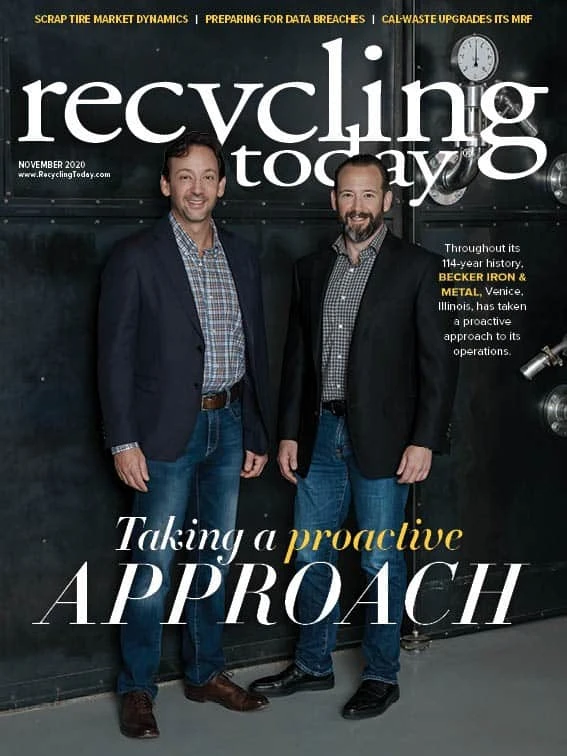California governor signs recycled-content bill

California’s AB 793, which requires manufacturers to include recycled materials when making plastic beverage bottles, was approved by the state legislature in early September and signed by Gov. Gavin Newsom Sept. 24. The legislation sets a phased-in timeline of when companies must meet minimum content standards, ultimately achieving 50 percent recycled content, surpassing the 30 percent mandate in the European Union.
“The time has come for shared responsibility,” says Phil Ting, a California assembly member and one of the bill’s sponsors. “Our environment suffers when companies keep making new plastic every time they need a drink container. They need to reuse what they’ve already made.”AB 793 is designed to bolster the market for recycled polyethylene terephthalate in the state. Manufacturers must meet a number of deadlines for recycled content, achieving 15 percent by 2022, 25 percent by 2025 and 50 percent by 2030.
“Assembly Member Ting and I worked extensively with the industry stakeholders to ensure that this bill is both bold and workable,” says California Assembly Member Jacqui Irwin. “The result is the most aggressive recycled-content mandate in the world for plastic bottles.”
AB 793 is Ting’s second attempt at recycled-plastic content in bottles. Newsom vetoed a similar bill last year because of cost concerns, which Ting says have been addressed this year.
By signing AB 793, Newsom has made California the first state in the nation to establish minimum recycled-content requirements for plastic beverage containers.
“California has long led the way on bold solutions in the climate space, and the steps we take today bring us closer to our ambitious goals,” Newsom said upon signing the bill.
AmSty, Ineos choose Illinois for polystyrene chemical recycling plant
Ineos Styrolution and AmSty, two global producers of polystyrene (PS), have announced plans to construct a 100-ton-per-day facility in Channahon, Illinois, that will use Agilyx’s chemical recycling technology to convert discarded PS back into what the firms call “virgin-equivalent styrene monomer.”
The announcement occurs just one week after Ineos Styrolution and AmSty, along with fellow PS producer Trinseo, announced they had signed a joint development agreement to work together to explore recycling options for PS.
“Discarded single-use items, like polystyrene foam cups and yogurt cups, can now go right back to the same applications over and over at the same purity and performance with no need to landfill,” says Greg Fordyce, Americas president for Ineos Styrolution. “We are excited to join forces with AmSty on this ambitious project, which we expect will elevate polystyrene as a sustainable material of choice.
He adds, “In particular, this facility will dramatically increase recycling rates in the greater Chicago area.”
In 2018, AmSty and Agilyx formed their Regenyx joint venture to develop a similar facility in Tigard, Oregon, using Agilyx’s pyrolysis technology. The Channahon facility will be engineered on a larger scale in cooperation with Agilyx to “represent the next generation” of chemical recycling technology, the firms say.
Agilyx will source and supply plastic scrap feedstock for the facility through its recently formed Cyclyx subsidiary.
“In addition to the technology, we have developed a feedstock management system, which is just as important as the technology in developing the supply chain for this new market,” says Joe Vaillancourt, president of Cyclyx.
Engineering design for the new Channahon facility is underway, with the next phases expected to be construction and commissioning, according to the firms involved in the project.
Get curated news on YOUR industry.
Enter your email to receive our newsletters.

Explore the November 2020 Issue
Check out more from this issue and find your next story to read.
Latest from Recycling Today
- ReMA board to consider changes to residential dual-, single-stream MRF specifications
- Trump’s ‘liberation day’ results in retaliatory tariffs
- Commentary: Waste, CPG industries must lean into data to make sustainable packaging a reality
- DPI acquires Concept Plastics Co.
- Stadler develops second Republic Services Polymer Center
- Japanese scrap can feed its EAF sector, study finds
- IRG cancels plans for Pennsylvania PRF
- WIH Resource Group celebrates 20th anniversary






